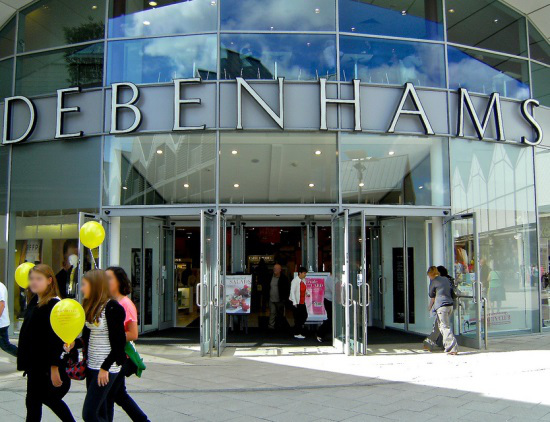In the battle of the department stores, it is fair to say that John Lewis has resoundingly come up on top. Posting steady profits even at the height of the recession, incorporating the group’s Waitrose brand to strengthen the business and even pushing forward in the competitive electronics sector, it managed to leave main rival Debenhams in the dust.

And while many hoped that the upturn in the economy may have levelled the playing field somewhat, it seems that Debenhams’ problems have continued to endure. The retailer this week posted a gloomy set of full year results, indicating that more must be done in order to become a force to be reckoned with within the department store sector.
In the year to the 31st of August, pre-tax profits at Debenhams dropped by 2.7 per cent to £154 million, a factor it largely blames upon the profits warning in January having a negative impact upon consumer confidence in its brand. Furthermore, its new season launch for spring was hampered by wet weather keeping consumers indoors.
Unfortunately, the retailer has little hope of this bad run ending any time soon, as it believes consumers remain concerned about household finances. This has largely been the message coming from the high street, with retailers doubtful that the recent economic upturn has had a significant impact upon disposable income.
Michael Sharp, chief executive, says; “The past year has not been without its challenges and I believe despite the improved news about the economy, the UK consumer remains under pressure.
“With this in mind, we remain cautious about the strength and pace of any consumer recovery in 2014 and expect the marketplace to remain highly competitive.”
However, there were also several encouraging signs in the annual report which show Debenhams to be taking steps towards growing market share. Like for like sales actually rose by 2 per cent during the year, largely thanks to a 46.2 increase in online revenues offsetting a 2.7 per cent plummet in comparable store sales.
At this point, Debenhams’ online operations account for 13.2 per cent of total annual turnover having taken £366.3 million in the last financial year. This is up from 9.3 per cent the previous year – a sure sign that, while consumers may have chosen to avoid the chain’s stores, the stock on offer is still very much in demand.
On the commercial property front, Mr Sharp hinted at plans to open four further Debenhams stores across the UK in the coming financial year, cashing in on a renewed consumer enthusiasm for the high street. Additionally, the retailer is currently in the process of revamping and modernising its flagship Oxford Street store, which it plans to re-open in December both to take advantage of the Christmas rush and to play a starring role in the firm’s 200th anniversary celebrations.
At present, Debenhams has 238 stores in 29 countries worldwide, 156 of which are located in the UK.
How do you think Debenhams could entice consumers back into its high street stores – is it a matter of updating stores by incorporating modern technologies, or are the ranges and items on sale the root of the problem?
Previous Post
Tips on How to Regain Possession of Commercial Property